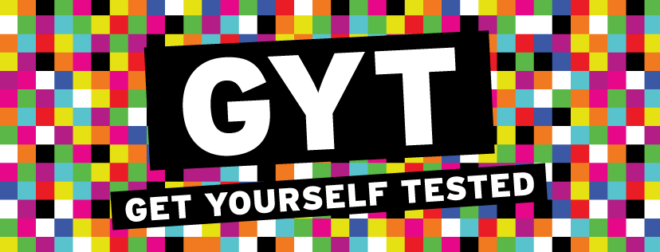Every Sexually Transmitted Infection (STI) is different, both in the symptoms it may cause and how to treat it.
There is one thing that is the same about every STI — the only way to know if you have one is by getting tested.
Sometimes it can be hard to tell if you need to get tested for an STI. If you have any of the symptoms of an STI — or if you’re worried at all that you may have one — you should go ahead and get tested. If you test negative for an STI, you can take steps to stay that way. If you test positive for an STI, you can get treatment to protect your partners, stay healthy, and/or extend your life and enhance its quality.
Find Out More about HIV/AIDS and STIs
Ohio HIV/AIDS/STI Hotline: (800) 332-2437
Locations Providing Free HIV/STI Testing
(close to the Center)
- Central Outreach Wellness
- Onsite @ The Center
- Equitas Health – Short North Medical Center
- 1033 North High Street
- Out of the Closet (AIDS Healthcare Foundation)
- 1230 North High Street
Frequently Asked Questions (about HIV and testing)
More questions about getting tested? Click here.
More questions about HIV/AIDS? Click here.
Questions about STIs? Click here.
Do you know about PrEP?
Pre-Exposure Prophylaxis (PrEP) is an essential tool to reduce HIV transmission. It is a daily dose of antiretroviral medication that helps prevent HIV infection. When used consistently, studies show that PrEP is more than 90% effective at preventing transmission.
Have you heard about (PEP)?
PEP is another pill that helps protect against HIV. PEP stands for post-exposure prophylaxis. Unlike PrEP, it is designed to take after you think you may have been exposed to HIV. It is a series of pills that lowers your chances of getting HIV after a possible exposure.
You have to start PEP within 72 hours (3 days) after you were exposed to HIV for it to work. The sooner you start it, the better. Every hour counts, so if you think you were exposed to HIV, call your nurse or doctor or go to the emergency room right away. PEP is only for emergencies — it doesn’t take the place of using condoms or PrEP. Click here to learn more about PEP.
Have more specific questions? Need connections to specific services? Email info@stonewallcolumbus.org and our HIV/STI Wellness Coordinator will get back to you.
Are you a community member with more specific questions or need for resources as it relates to HIV? Please complete this form for additional follow-up: https://forms.office.com/r/eeWQ1FJDbP
Stonewall Columbus is not a medical service providing organization, information found on this page/site is for informational purpose only; you should always speak to a trained medical service provider about your own individual care.
03.29.2023





